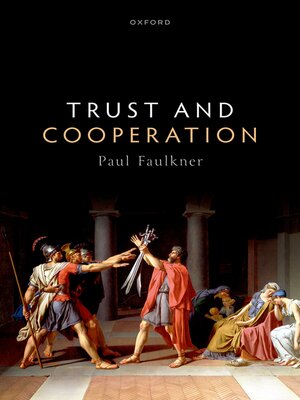
Sign up to save your library
With an OverDrive account, you can save your favorite libraries for at-a-glance information about availability. Find out more about OverDrive accounts.
Find this title in Libby, the library reading app by OverDrive.



Search for a digital library with this title
Title found at these libraries:
| Library Name | Distance |
|---|---|
| Loading... |
Trust is a cooperating enabling attitude. We cooperate both practically and epistemically: we coordinate our actions and share what we know, and in both cases, trust enables this cooperation. By virtue of trusting, it is rational to rely on others. When this is taken to be the function of trust, two distinct attitudes emerge as trusting. One is situated within an objective view of the world and constitutes a prediction of behaviour, which in the interpersonal case amounts to some calculation of interest from sanctions and rewards. The other can only be interpersonal and requires these interactions be approached from the participant stance. In Trust and Cooperation, Paul Faulkner considers how these two distinct attitudes of trust—predictive and affective—support cooperation and how the two perspectives on our interpersonal life within which each is embedded engage with each other. Affective trust is a response to another's commitment, which sees the commitment itself as constituting a reason to believe and places on the trusted an expectation of this commitment being fulfilled. It is a commitment indexed expectation. In being optimistically held, trust in this sense constitutes a form of recognition and respect. So we can wrong others in relying only on calculation of the probability of outcome. But our actual engagements can be messy; as well as being an interpersonal act, cooperation can equally be calculated coordination.







